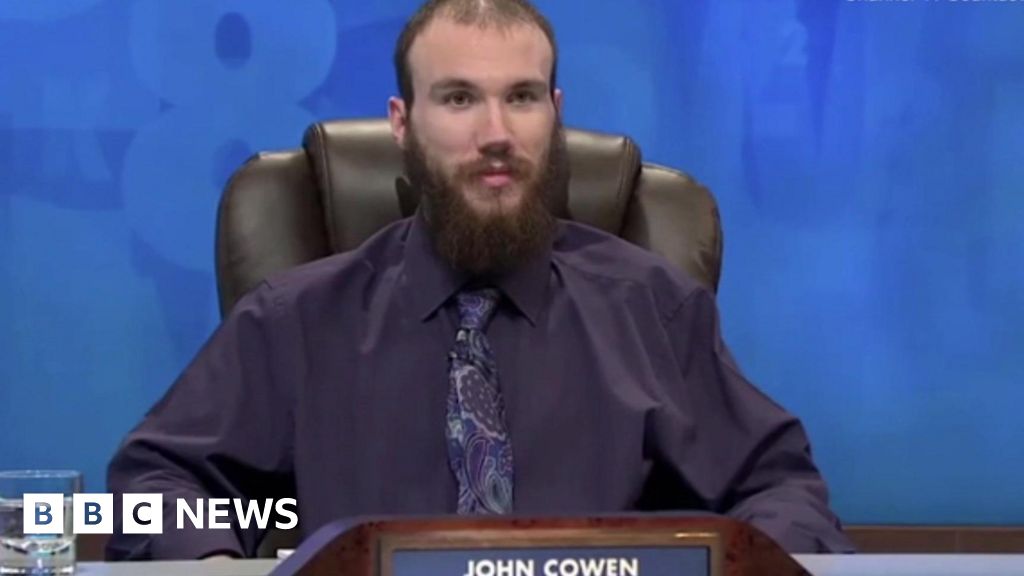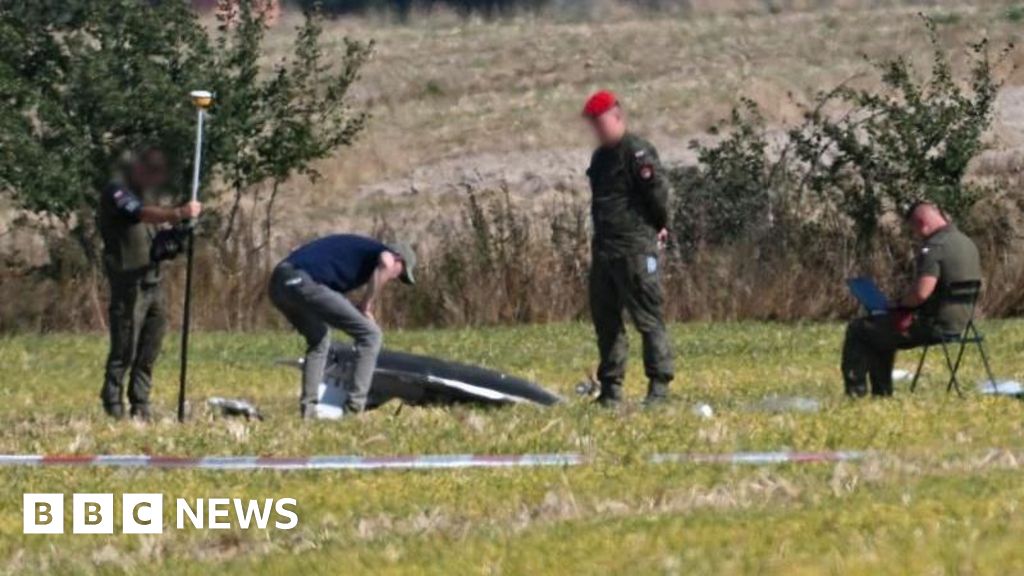Summary of the day so far
It has just gone 3pm in Paris. Here is a summary of the day so far:
-
Sébastien Lecornu, picked by president Emmanuel Macron to be France’s fifth prime minister in two years, took office on a day of sprawling anti-government protests on Wednesday that underlined the depth of the country’s political crisis.
-
Lecornu, a conservative Macron protege who most recently served as his defence minister, arrived at the prime minister’s residence at midday where he met former prime minister François Bayrou, who was ousted by parliament on Monday over plans to trim the country’s outsized deficit.
-
France’s new prime minister promised a “profound break” with the past on Wednesday as he faced the thorny task of trying to build a government with enough parliamentary support to avoid an early demise. Lecornu said he would address the nation “in the coming days” to explain his approach, which would be different from the past, and “not just in method”.
-
The hard-left France Unbowed (LFI) party has already announced a no-confidence motion against Lecornu in parliament, for now with no backing from other parties.
-
Street protests have been taking place across France in a show of grassroots opposition to President Emmanuel Macron, which have resulted in clashes with police and near 300 arrests, as well as some disruption to transport, schools and other services.
-
Earlier Wednesday, France deployed 80,000 police nationwide to face demonstrators. Interior Minister Bruno Retailleau warned demonstrators that there would be “zero tolerance” for violence.
-
Despite a call by a loose left-wing coalition of organisers to “block everything”, that target was only partly achieved. Most high-speed trains ran on schedule, and disruption to the Paris metro was minimal, operators reported. But many schools were blocked, and protesters occupied roads and railway stations across the country.
-
Protesters in and around Paris built barricades from rubbish bins, blocked schools and roads and pelted police with garbage early in the day. Paris police also reported that about 1,000 protesters tried to gain entry to the Gare du Nord but were prevented from doing so.
-
In the south-eastern city of Lyon, protesters blocked a road running through the city and set bins on fire, while in the western city of Nantes police used teargas to disperse protesters. In the southern port city of Marseille, police stopped 200 demonstrators from blockading a main road.
Key events
Telegram founder Pavel Durov has expressed pride that protesters in France used the platform to organise rallies against president Macron.
He wrote on X:
Proud that Telegram is a tool for protests in France against Macron’s failed policies. After 8 years of neglect, people are done with empty PR and posturing – and they’re striking back.
The Russian-born entrepreneur was detained in Paris in 2024 and is now under formal investigation by French authorities over Telegram’s alleged involvement in facilitating criminal activity.
A central Paris restaurant appeared to be set on fire during the ‘Block Everything’ protests, France24 is reporting.
French TV showed images of flames coming from the building, while a man was seen climbing down via scaffolding on the building next door.
Pictures show the restaurant is Wafu Bar, located in Rue St Denis. Police officers could be seen attempting to secure a perimeter around the building.

Katherine Butler
One in, one out. On Monday night, “Bye-bye Bayrou” parties were held around France as François Bayrou, the now ex-prime minister of France, was ejected in a landslide parliamentary confidence vote against his plans for austerity. Bayrou, the third French PM to resign in a year, had lasted just nine months. His predecessor, Michel Barnier, was toppled after just three.
Twenty-four hours after the government’s collapse, the revolving door was opened again and Emmanuel Macron appointed a successor: the 39-year-old defence minister and one of the president’s closest allies, Sébasian Lecornu. This was an uncharacteristically swift attempt by Macron to fill the vacuum and quell a mood of insurrection in the country. But it may not be enough.
Much depends on how extensively the call for a nationwide shutdown of transport and other services by a new grassroots protest campaign called Bloquons Tout! (Block Everything!) is heeded by the public.
The new PM took office amid street clashes with police, burning bins, barricades and go-slow operations around the country. Some regional train services are down. The main trade unions have separately called for mobilisations and protests on the 18 September.
Organised anonymously online over the summer, and later supported by some leftwing parties, Bloquons Tout!, like the gilets jaunes anti-government movement of 2018, is leaderless. Analysts, though, are wary of drawing close comparisons with the gilets jaunes. “The movement’s ideological and sociological profile is difficult to establish,” said Pierre Purseigle, lecturer in modern European history at the University of Warwick. “The political situation is evolving and we may know within weeks if Bloquons Tout! is a flash in the pan and or the harbinger of a mass social movement.”
Protesters across France disrupted traffic, burnt rubbish bins and at times clashed with police on Wednesday in a bid to “Block Everything” in a show of anger against president Emmanuel Macron, the political establishment and planned budget cuts.
Tens of thousands of security forces who had been deployed across the country removed blockades as fast as possible, officials said, meaning that France was, for now, not blocked despite some scuffles.
Nearly 300 protesters were arrested across the country.
Tens of thousands of demonstrators gathered for largely peaceful protests in Marseille, Montpellier and Lyon.
In Marseille, police estimated the crowd at 8,000, while organisers claimed 30,000 participants and the CGT union reported as many as 80,000, France24 reported.
Lyon saw around 8,000 protesters, according to police, while Montpellier saw approximately 6,000.
In Montpellier, protesters carried anti-capitalist signs, demanded the protection of public services and chanted slogans including “Lecornu, you’re screwed.”
Political reactions to Lecornu’s appointment underscore challenge he faces
Reactions to new French prime minister Sébastien Lecornu’s appointment underscored the challenge he faces.
While the hard-left said it would seek to topple Lecornu with an immediate no-confidence motion, the far-right the National Rally (RN) signalled tentative willingness to work with him on the budget – as long as its budgetary demands are met, reports Reuters.
The RN is France’s largest parliamentary party and as such a crucial factor in any potential no-confidence motion. Still, Lecornu is seen as the closest member of Emmanuel Macron’s circle to the RN, having dined with RN president Jordan Bardella last year.
Bardella, reacting to Lecornu’s speech on Wednesday, said the new prime minister “is in a very precarious position.”
Using the same word used by Lecornu in his speech, Bardella said he wanted to see the new government adopt RN concerns:
Either there’s a rupture, or there’s a no-confidence motion.
Summary of the day so far
It has just gone 3pm in Paris. Here is a summary of the day so far:
-
Sébastien Lecornu, picked by president Emmanuel Macron to be France’s fifth prime minister in two years, took office on a day of sprawling anti-government protests on Wednesday that underlined the depth of the country’s political crisis.
-
Lecornu, a conservative Macron protege who most recently served as his defence minister, arrived at the prime minister’s residence at midday where he met former prime minister François Bayrou, who was ousted by parliament on Monday over plans to trim the country’s outsized deficit.
-
France’s new prime minister promised a “profound break” with the past on Wednesday as he faced the thorny task of trying to build a government with enough parliamentary support to avoid an early demise. Lecornu said he would address the nation “in the coming days” to explain his approach, which would be different from the past, and “not just in method”.
-
The hard-left France Unbowed (LFI) party has already announced a no-confidence motion against Lecornu in parliament, for now with no backing from other parties.
-
Street protests have been taking place across France in a show of grassroots opposition to President Emmanuel Macron, which have resulted in clashes with police and near 300 arrests, as well as some disruption to transport, schools and other services.
-
Earlier Wednesday, France deployed 80,000 police nationwide to face demonstrators. Interior Minister Bruno Retailleau warned demonstrators that there would be “zero tolerance” for violence.
-
Despite a call by a loose left-wing coalition of organisers to “block everything”, that target was only partly achieved. Most high-speed trains ran on schedule, and disruption to the Paris metro was minimal, operators reported. But many schools were blocked, and protesters occupied roads and railway stations across the country.
-
Protesters in and around Paris built barricades from rubbish bins, blocked schools and roads and pelted police with garbage early in the day. Paris police also reported that about 1,000 protesters tried to gain entry to the Gare du Nord but were prevented from doing so.
-
In the south-eastern city of Lyon, protesters blocked a road running through the city and set bins on fire, while in the western city of Nantes police used teargas to disperse protesters. In the southern port city of Marseille, police stopped 200 demonstrators from blockading a main road.
Protests against the French government, as part of the ‘block everything’ movement, have been taking place across the country. Here are just a few images of demonstrations in Montpellier, Bordeaux, Strasbourg, Paris and Nantes:
For the third time in a year a French prime minister has resigned and the president has had to swiftly choose a replacement. What’s behind the chaos? Angelique Chrisafis reports in the latest episode of the Guardian’s Today in Focus podcast:
With France gripped by a prolonged cycle of instability, where minority governments installed by President Emmanuel Macron have lurched from crisis to crisis, the movement also had support from people who did not protest, reports the Associated Press (AP).
“There’s a lot of weariness, shared weariness, a lot of frustration that things aren’t moving forward,” said Lila, a Paris office worker who asked that her family name not be published. “That, in part, explains these blockades and this generalised unhappiness.”
Some criticised the disruptions, according to the AP.
“It’s a bit excessive,” said Bertrand Rivard, an accounting worker on his way to a meeting in Paris. “We live in a democracy and the people should not block the country because the government doesn’t take the right decisions.”
Nearly 300 protesters arrested, French interior ministry says
Nearly 300 protesters have been arrested across the country, Reuters reports, amid anger against Emmanuel Macron which the appointment of his new prime minister has done nothing to assuage.
In Paris, police fired teargas on youths blocking the entrance to a high school and firefighters removed burnt objects from a barricade.
“I was expecting either a dissolution [of parliament] or a left-wing prime minister and we have neither, it’s frustrating,” said 18-year-old student Lisa Venier, who was among protesters near the Gare du Nord station.
The newswires have captured some dramatic images of the protests across France:
Lecornu suggests change in policy needed
French prime minister Sébastien Lecornu has said that his new government will need to be creative and talk with opposition parties, adding that there may need to be a change in policies as well.
“There must be changes – not just in terms of form or method, but in substance,” he said at the handover ceremony from François Bayrou.
“No big speech today. Starting from this afternoon, I will meet with members from the biggest political parties and in the coming days, other political parties, unions and I will have the occasion to explain myself before the French people,” he said.
The lack of “big speech” today means the new prime minister will not be addressing the country against a backdrop of huge nationwide protests.
One possible path for Sébastien Lecornu to pass the budget involves uniting the Socialists – who want to water down cuts and tax the rich – with his former party, the Republicans, who are dead-set against any tax rises, reports Reuters.
Emmanuel Macron, in an unusual step, called Socialist party leader Olivier Faure on Tuesday to tell him he would not be appointing a leftist as prime minister. But on Wednesday, Faure appeared to leave the door ajar to working with Lecornu, while also saying he would support a no-confidence measure if he felt the government did not take on board its budgetary priorities.
But the protests – an expression of broad discontent with Macron, proposed budget cuts and the entire political class – underline the task facing Lecornu.
“Anger has been rumbling for months, even years,” said Daniel Bretones, a union member protesting in Marseille. “We’re on the fifth prime minister under Macron’s second term, and it has never changed anything.”
Meanwhile, here are some images from protests in Paris:
France’s new prime minister takes office amid anti-government protests
Sébastien Lecornu, picked by president Emmanuel Macron to be France’s fifth prime minister in two years, took office on a day of sprawling anti-government protests on Wednesday that underlined the depth of the country’s political crisis.
Lecornu, a conservative Macron protege who most recently served as his defence minister, arrived at the prime minister’s residence at midday where he met former prime minister François Bayrou, who was ousted by parliament on Monday over plans to trim the country’s outsized deficit.
Lecornu may then use his first speech to lay out how he will seek to reach consensus with an unruly parliament, split into three distinct ideological blocs, and pass a slimmed-down budget for next year, reports Reuters.
Lecornu has to send a full draft of the 2026 budget to parliament by 7 October, although there is some wriggle room until 13 October, after which lawmakers will run out of time to pass the budget by year’s-end.
Reactions to Lecornu’s appointment on Tuesday underscored the challenge he faces.
Parties broadly agree on the need to slash France’s deficit, which reached 5.8% of GDP in 2024, but not on how to do it. While the hard-left said it would seek to topple Lecornu with an immediate no-confidence motion, the far-right the National Rally (RN) signalled tentative willingness to work with him on the budget – as long as its budgetary demands are met.
“His budget will be RN or his government will not be,” RN lawmaker Laure Lavalette posted on X late on Tuesday, according to Reuters.
The RN is France’s largest parliamentary party and as such a crucial factor in any potential no-confidence motion. Still, Lecornu is seen as the closest member of Macron’s circle to the RN, having dined with RN president Jordan Bardella last year.



Comment ×